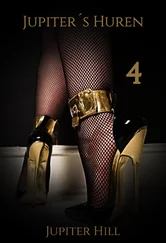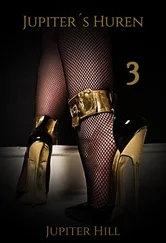Constance Woolson - Jupiter Lights
Здесь есть возможность читать онлайн «Constance Woolson - Jupiter Lights» — ознакомительный отрывок электронной книги совершенно бесплатно, а после прочтения отрывка купить полную версию. В некоторых случаях можно слушать аудио, скачать через торрент в формате fb2 и присутствует краткое содержание. Жанр: foreign_prose, на английском языке. Описание произведения, (предисловие) а так же отзывы посетителей доступны на портале библиотеки ЛибКат.
- Название:Jupiter Lights
- Автор:
- Жанр:
- Год:неизвестен
- ISBN:нет данных
- Рейтинг книги:4 / 5. Голосов: 1
-
Избранное:Добавить в избранное
- Отзывы:
-
Ваша оценка:
- 80
- 1
- 2
- 3
- 4
- 5
Jupiter Lights: краткое содержание, описание и аннотация
Предлагаем к чтению аннотацию, описание, краткое содержание или предисловие (зависит от того, что написал сам автор книги «Jupiter Lights»). Если вы не нашли необходимую информацию о книге — напишите в комментариях, мы постараемся отыскать её.
Jupiter Lights — читать онлайн ознакомительный отрывок
Ниже представлен текст книги, разбитый по страницам. Система сохранения места последней прочитанной страницы, позволяет с удобством читать онлайн бесплатно книгу «Jupiter Lights», без необходимости каждый раз заново искать на чём Вы остановились. Поставьте закладку, и сможете в любой момент перейти на страницу, на которой закончили чтение.
Интервал:
Закладка:
“What are pinguiculas? – Birds?”
“They are flowers,” responded Miss Sabrina, mildly.
“It will be six weeks, then; to-day is the fifteenth.”
“Six weeks to what?”
“To March; to spring.”
“I don’t know that it begins on the very first day,” remarked Miss Sabrina.
“Mine shall!” thought Eve.
Romney was near the northern end of the home-island; the voyage, therefore, was a short one. The chimneys of Singleton House came into view; but the boat passed on, still going northward. “Isn’t that the house?” Eve asked.
“Yes, but the landing is farther on; we always go to the landing, and then walk back through the avenue.”
But when the facade appeared at the end of the neglected road – a walk of fifteen minutes – there seemed to Eve hardly occasion for so much ceremony; the old mansion was in a worse condition than Romney; it sidled and leaned, and one of its wings was a roofless ruin, with the planking of the floor half tilted up, half fallen into the cellar. Miss Sabrina betrayed no perception of the effect of this upon a stranger; she crossed the veranda with her lady-like step, and said to a solemn little negro boy who was standing in the doorway: “Is Mrs. Singleton at home this evening, Boliver? Can she see us? – Miss Bruce and Miss Abercrombie.”
An old negro woman came round the corner of the house, and, cuffing the boy for standing there, ushered the visitors into a room on the right of the broad hall. The afternoon had grown colder, but the doors and windows all stood open; a negro girl, who bore a strong resemblance to Powlyne, entered, and chased out a chicken who was prowling about over the matted floor; then she knelt down, with her long thin black legs stretched out behind, and tried to light a fire on the hearth. But the wind was evidently in the wrong direction for the requirements of that chimney; white smoke puffed into the room in clouds.
“Let us go out on the veranda,” suggested Eve, half choked.
“Oh, but surely – When they have ushered us in here?” responded Miss Sabrina, remonstratingly, though she too was nearly strangled. “It will blow away in a few minutes, I assure you.”
Much of it still remained when Mrs. Singleton entered. She paid no more attention to it than Miss Sabrina had done; she welcomed her guests warmly, kissing Eve on both cheeks, although she had never seen her before. “I have been so much interested in hearing that you are from England, Miss Bruce,” she said, taking a seat beside her. “We always think of England as our old home; I reckon you will see much down here to remind you of it.”
Eve looked about her – at the puffing smoke, at the wandering chicken, who still peered through one of the windows. “I am not English,” she said.
“But you have lived there so long; ever since you were a child; surely it is the same thing,” interposed Miss Sabrina. A faint color rose in her cheeks for a moment. Eve perceived that she preferred to present an English rather than a Northern guest.
“We are all English, if you come to that,” said Mrs. Singleton, confidently. She was small, white-haired, with a sweet face, and a sweet voice that drawled a little.
“Eve is much interested in our nig-roes,” pursued Miss Sabrina; “you know to her they are a novelty.”
“Ah dear, yes, our poor, poor people! When I think of them, Miss Bruce, scattered and astray, with no one to advise them, it makes my heart bleed. For they must be suffering in so many ways; take the one instance of the poor women in their confinements; we used to go to them, and be with them to cheer their time of trial. But now, separated from us, from our care and oversight, what can they do? If the people who have been so rash in freeing them had only thought of even that one thing! But I suppose they did not think of it, and naturally, because the abolitionist societies, we are told, were composed principally of old maids.”
Eve laughed. “Why can’t they have nurses, as other people do?”
“You don’t mean regular monthly nurses, of course?”
“Why not? – if they can afford to pay for them. They might club together to supply them.”
“Oh, I don’t think that would be at all appropriate, really. And Eve does not mean it, I assure you,” said Miss Sabrina, coming to the rescue; “her views are perfectly reasonable, dear Mrs. Singleton; you would be surprised.”
“You would indeed!” Eve thought.
But they talked no more of the nig-roes.
“How is Miss Hillsborough?” Miss Sabrina asked.
“Right well, I am glad to say. My dear Aunt Peggy, Miss Bruce; and what she is to me I can hardly tell you! You know I am something of a talker” – here Mrs. Singleton laughed softly. “And we are so much alone here now, that, were it not for Aunt Peggy, I should fairly have to talk to the chickens!” (One at least would be ready, Eve thought.) “Don’t you know that there are ever so many little things each day that we want to say to somebody?” Mrs. Singleton went on. “Thinking them is not enough. And these dear people, like Aunt Peggy, who sit still and listen; – it isn’t what they answer that’s of consequence; in fact they seldom say much; it’s just the chance they give us of putting our own thought into words and seeing how it looks. It does make such a difference.”
“You are fortunate,” Eve answered. “And then you have your little boy, too; Cicely has told me about him – Rupert; she says he is a dear little fellow.”
“Dear heart!” exclaimed Miss Sabrina, distressed. “Cicely is sometimes – yes – ”
But Mrs. Singleton laughed merrily. “I will show him to you presently,” she said.
“Mr. Singleton is so extraordinarily agreeable!” said Miss Sabrina, with unwonted animation.
“Oh yes, he is wonderful; and he is a statesman too, a second Patrick Henry. But then as regards the little things of each day , you know, we don’t go to our husbands with those .”
“What do you do, then? – I mean with the husbands,” Eve asked.
“I think we admire them,” answered Mrs. Singleton, simply.
Lucasta, the negro girl, now appeared with a tray. “Pray take some Madeira,” said their hostess, filling the tiny glasses. “And plum-cake.”
Eve declined. But Miss Sabrina accepted both refreshments, and Mrs. Singleton bore her company. The wine was unspeakably bad, it would have been difficult to say what had entered into its composition; but Madeira had formed part of the old-time hospitality of the house, and something that was sold under that name (at a small country store on the mainland opposite) was still kept in the cut-glass decanter, to be served upon occasion.
Presently a very tall, very portly, and very handsome old man (he well merited three verys) came in, leaning on a cane. “Miss Bruce – little Rupert; our dear little boy,” said Mrs. Singleton, introducing him. She had intended to laugh, but she forgot it; she gazed at him admiringly.
The master of the house put aside his cane, and looked about for a chair. As he stood there, helpless for an instant, he seemed gigantic.
Eve laughed.
Miss Sabrina murmured, “Pleasantry, dear Mr. Singleton; – our foolish pleasantry.”
After the old gentleman had found his chair and seated himself, and had drawn a breath or two, he gave a broad slow smile. “Nanny, are you in the habit of introducing me to your young lady friends as your dear little Rupert? – your little Rupe?”
“Rupe? Never!” answered Mrs. Singleton, indignantly.
“Only our foolish pleasantry,” sighed Miss Sabrina, apologetically.
“It was Cicely,” Eve explained.
“If it was Cicely, it was perfect,” the lame colossus answered, gallantly. “Cicely is heavenly. Upon my word, she is the most engaging young person I have ever seen in my life.”
Читать дальшеИнтервал:
Закладка:
Похожие книги на «Jupiter Lights»
Представляем Вашему вниманию похожие книги на «Jupiter Lights» списком для выбора. Мы отобрали схожую по названию и смыслу литературу в надежде предоставить читателям больше вариантов отыскать новые, интересные, ещё непрочитанные произведения.
Обсуждение, отзывы о книге «Jupiter Lights» и просто собственные мнения читателей. Оставьте ваши комментарии, напишите, что Вы думаете о произведении, его смысле или главных героях. Укажите что конкретно понравилось, а что нет, и почему Вы так считаете.












